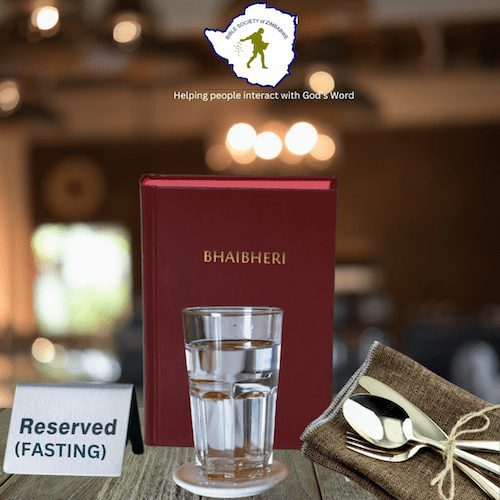Introduction
Have you ever wondered what’s the buzz about fasting? The Lenten season is here and fasting takes centre stage in conversations. It’s the talk of the town during these days of reflection and spiritual dedication. Lent provides a 40-day period for fasting and prayer (Sundays are excluded), in imitation of Jesus Christ’s fasting in the wilderness before he began his public ministry.
Fasting might sound like a complicated idea, but let’s break it down in simple terms and see how this ancient practice can be relevant and meaningful for you today.
Understanding Biblical Fasting
What exactly is fasting? Well, it’s not about giving up your favourite snacks or skipping meals for the sake of a diet. In the Bible, fasting is a spiritual discipline where people would voluntarily abstain from certain foods or activities for a specific period. It’s not just about going without; it’s about seeking a deeper connection with God through prayer and meditation.
Examples from the Bible
If you’re curious about how people in the Bible practiced fasting, let’s take a look at a couple of examples. Remember the story of Jesus spending 40 days and nights in the desert (Matthew 4 v 1-11)? That’s a form of fasting! Another example is found in the book of Daniel 10 v 2-3, where he chose to eat only vegetables and drink water for a set period, the Ninevah fast (Jonah 3 v 5-9) and Esther’s fast (Esther 4).
Benefits of Fasting
Why would anyone willingly give up food or certain activities? Well, there are a few reasons. Fasting allows you to:
- Draw Closer to God: By setting aside time for prayer and reflection, fasting helps strengthen your spiritual connection with God.
- Develop Self-Discipline: Fasting requires self-control and discipline. It’s a great way to practice saying ‘no’ to immediate desires for a greater purpose.
- Seek Guidance: In times of confusion or decision-making, fasting can be a way to seek God’s guidance and wisdom.
- Express Repentance: Fasting can also be a way to express sorrow for mistakes and seek forgiveness.
Now, how can you, incorporate fasting into your life in a practical way?
- Start Small: Instead of jumping into a lengthy fast, begin with a shorter period and gradually increase as you become more comfortable.
- Digital Detox: In a world where screens dominate our attention, a digital fast can be equally transformative. Dedicate a specific time each day or week to disconnect from technology and focus on prayer, meditation, or reading Scripture.
- Choose Wisely: Decide what you want to fast from – it could be a particular type of food, social media, or any activity that distracts you from having a quiet time with God.
- Set Goals: Clearly define your goals for fasting. Whether it’s seeking guidance, deepening your relationship with God, or developing self-discipline, having a purpose will make the experience more meaningful.
- Stay Connected: Engage in prayer and spend quality time meditating on the Word of God.
- Corporate Fasting: Engage in fasting as a community. Whether it’s a family, church group, or online community, coming together in a shared fast can enhance the experience and foster a sense of unity.
Conclusion
Fasting is not a one-size-fits-all practice. It’s a personal journey that allows you to grow spiritually, develop self-discipline, and seek God’s guidance. So, if you’re curious about building up your faith in a new way, consider giving fasting a try. It might just be the key to unlocking a deeper connection with God.

